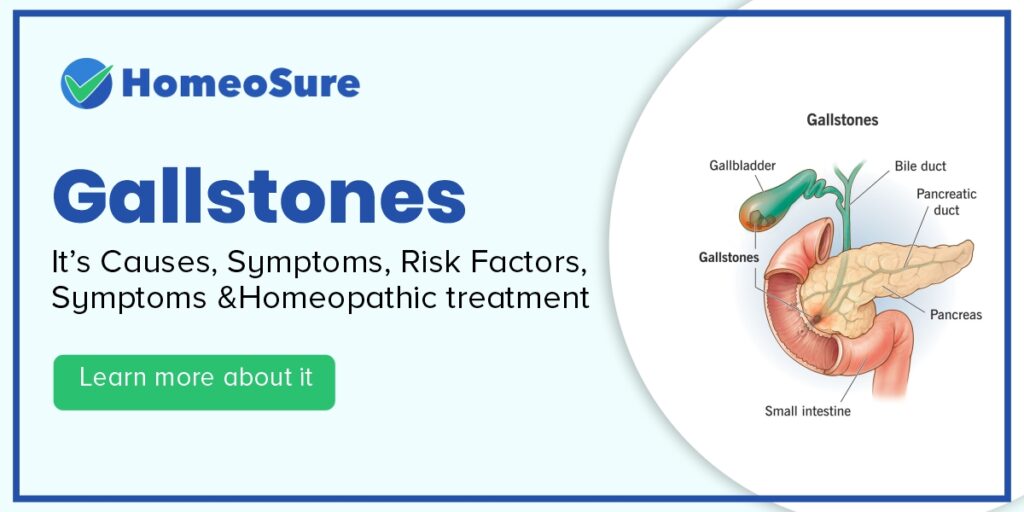Gallstones
Gallstones are small hardened, solidified deposits of bile form within the gallbladder. Though they are initially formed in the gallbladder, they may distally travel to other parts of biliary tract causing other serious conditions. In most cases they don’t cause any symptoms and don’t need to be treated. However, if a gallstone becomes trapped in a duct (opening) inside the gallbladder it can trigger a sudden intense abdominal pain that usually lasts between one and five hours.
Bile is a liquid produced by the liver to help digest fats. It passes from the liver through a series of channels, known as bile ducts, into the gallbladder. The bile is stored in the gallbladder and over time it becomes more concentrated, which makes it better at digesting fats. The gallbladder releases bile into the digestive system when it’s needed.
Gallstones affect 11 % of the general population and females are more commonly affected than males.
CAUSES OF GALL STONES
Gallstones are thought to develop because of an imbalance in the chemical make-up of bile inside the gallbladder. In most cases the levels of cholesterol in bile become too high and the excess cholesterol forms into stones. Some studies also suggest that genetics and heredity factors are at the root of this condition that makes one prone to have gallstones.
RISK FACTORS
- Being overweight or obese
- Female, particularly if you’ve had children
- Liver Disorders or Infections
SYMPTOMS OF GALL STONES
Usually Asymptomatic but may manifest with symptoms like:
- Pain in right upper part of abdomen radiating to shoulder and back
- Dull and constant pain lasting from few minutes to several hours
- In severe cases, yellowishness of skin and fever may occur
COMPLICATIONS OF GALL STONES
When gallstones invade the biliary tract, they cause obstruction of bile ducts producing various other complications such as:
- Cholecystitis: Inflammation of the gallbladder
- Pancreatitis: Inflammation of the pancreas
- Empyema of the gallbladder
- Cancer of gallbladder (in rare instances)
HOMEOPATHIC TREATMENT
Homeopathy medicines are effective in alleviating pain as well as chronic inflammation of gallbladder (cholecystitis) associated with the condition. Homeopathy also helps to control further stone production activity. It the stones are bigger, multiple and impacted, it may require surgical intervention. In cases of Large and multiple stones, homeopathy has no curative role to play.
Homeopathic treatment is targeted towards UPROOTING THE DISEASE and ensuring health with no side effects. For prescribing to an individual, a PLAN OF TREATMENT is followed which involves:
- GETTING THOROUGH UNDERSTANDING OF CASE which includes complete case taking (analyzing patient as an individual) along with patient history and family history
- DIAGNOSIS OF PATIENT AND DISEASE
- INDIVIDUAL ASSESSMENT OF THE CASE
- PRESCRIBING THE MOST SUITABLE INDIVIDUAL CONSTITUTIONAL REMEDY
